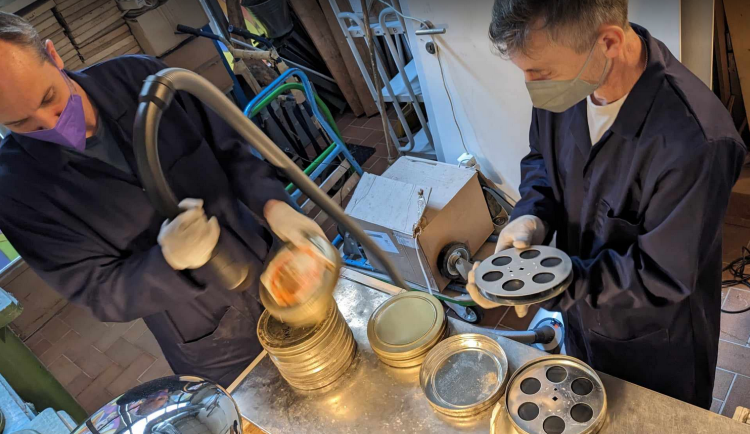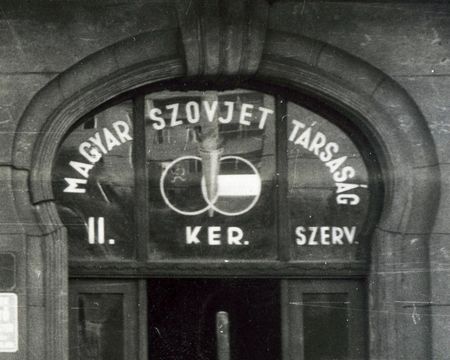Today is the World Day for Audiovisual Heritage. On this occasion, we are happy to announce that the Audiovisual Unit of the Blinken OSA Archivum has started archiving the films of the Hungarian–Soviet Friendship Society. The hundreds of reels of Soviet propaganda and educational films saved by György Gadányi after the 1989 regime compose an extraordinary collection of historical documents, which will be accessible to the general public.
Founded in 1945 under the name Magyar–Szovjet Művelődési Társaság (Hungarian–Soviet cultural society) and reassembled in 1957 under the name Magyar – Szovjet Baráti Társaság (Hungarian–Soviet friendship society, MSZBT), the organization’s activities included the dubbing and regular public screening of Soviet propaganda and educational films. After the 1989 regime change, the MSZBT ceased to exist without a legal successor; the hundreds of film reels accumulated over the decades were saved by photographer and collector György Gadányi, who donated the collection to the Blinken OSA Archivum in 2019.
The films are masterpieces of Soviet imperialism. Under the spell of friendship of peoples, peace and enlightenment, science and technology, and the service of progress, these propaganda films conceal the everyday reality of Soviet life, the one-party dictatorship: the tens of millions of people suffering in forced labor camps, or those deprived of their freedom of assembly, religion, and movement. The collection, which paints a rosy picture of the Soviet Union, fits perfectly into the Blinken OSA Archivum’s Cold War and propaganda film holdings, complementing similar fonds—that have also been saved from disposal—such as the films of Film Studio of the Hungarian Ministry of the Interior, the House of Soviet Science and Culture, the Hungarian Workers’ Militia Films, or the Military Film Studio.



